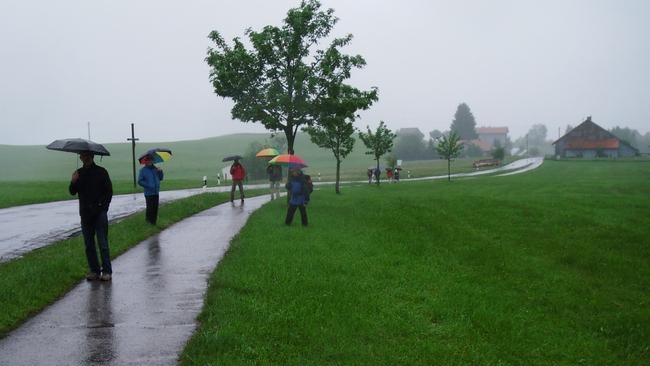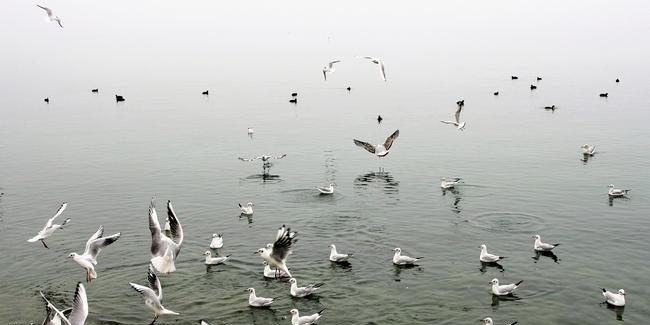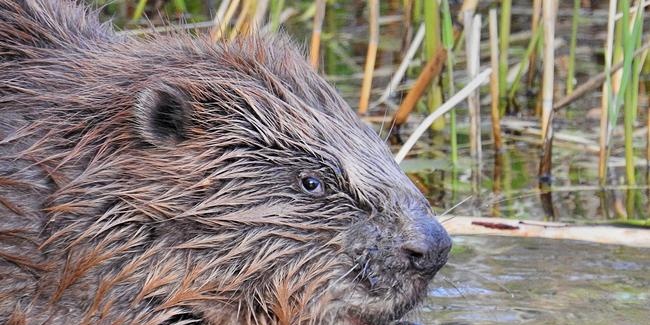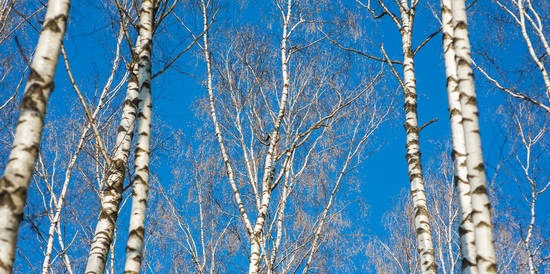Extraordinary barometers |
|
What is the reaction of plants to weather changes? It turns out that it is synchronous with these changes, but not ahead of them. Although in some cases, plants, responding to subtle fluctuations with which the weather begins to change, give us a signal, draw our attention to what is happening in nature. The rest of nature also responds in its own way to weather changes. For example, villagers know that before a severe storm, which is usually associated with the approach of a cyclone, and, therefore, with a significant drop in pressure, the water level in reservoirs (wells, ponds, springs) rises; bubbles appear in ditches, in swamps, "gurgling" is heard; the smell begins to be felt more sharply where stale leaves, grass or algae rot. The decrease in pressure promotes the spread of odors, which usually stick to the surface.
There is also such a sign among the people:
This observation is only partially true. Indeed, in windy weather, crows, like other birds, taking care of maintaining heat and stability, sit down so that the air flow blows over the plumage, without penetrating under it, the body of the bird, streamlined by the flow, renders the least resistance to the wind. This is achieved if the bird sits against the wind with its beak. In calm weather, the direction in which the bird's head is facing does not matter. The birds' sensitive reaction to the already existing weather is taken for the ability to predict. There are many such delusions. Even in popular science literature there are statements that "there are about six hundred species of animals" that predict the weather. It seems that if this figure is reduced even tenfold, then in this case the truth will still be far away. It would be more correct to say that more than six hundred species of animals react in one way or another to changes in the weather. The behavior of several dozen of them makes it possible to judge the weather in the coming hours. The ability of animals to "foresee" the weather many days in advance or even a whole season has not been confirmed by scientific research.
There are plenty of examples of the inability of animals to "foresee" the weather and associated living conditions. The situation created in the winter of 1975 is still fresh in my memory. In Belarus, Polesye lakes spilled over many hundreds of meters, flooded animal dwellings. Then people had to help out beavers in trouble. This is how the valley stands with living "barometers" in the nature that surrounds us. D. Bilenkin Similar publications |
| Russian troika | Wintering of birds off the Turkmen coast of the Caspian Sea |
|---|
New recipes
 It is well known that weather changes occur in a certain sequence. For example, bad weather is usually preceded by changes in pressure, sky conditions, illumination. A number of living organisms, possessing organs sensitive to meteorological changes, by their behavior can signal a change in weather.
It is well known that weather changes occur in a certain sequence. For example, bad weather is usually preceded by changes in pressure, sky conditions, illumination. A number of living organisms, possessing organs sensitive to meteorological changes, by their behavior can signal a change in weather. There is a widespread belief among sailors about the ability of seagulls to predict the weather: if seagulls land on the water, the weather will be good, and if they wander along the shore, it will deteriorate. It is believed that if birds fly over water, it will be windy, etc. The behavior of gulls reflects their ability to quickly adapt to the prevailing at the moment.
There is a widespread belief among sailors about the ability of seagulls to predict the weather: if seagulls land on the water, the weather will be good, and if they wander along the shore, it will deteriorate. It is believed that if birds fly over water, it will be windy, etc. The behavior of gulls reflects their ability to quickly adapt to the prevailing at the moment.  It is widely believed that some animals "have a presentiment" whether the winter will be long and cold or not. And depending on this, they say, they make supplies for the winter (squirrels) or equip, insulate their homes (muskrats,
It is widely believed that some animals "have a presentiment" whether the winter will be long and cold or not. And depending on this, they say, they make supplies for the winter (squirrels) or equip, insulate their homes (muskrats, 









